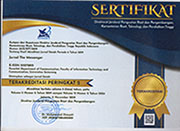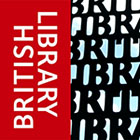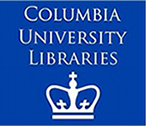The Use of Social Media in Searching for Information about Papua
Abstract
The use of social media in searching for information relating to political issues has become immensely crucial since in those domains the information appearing is often biased and dominated by certain parties or groups. One of the political information that has frequently emerged in Indonesia is about Papua. The significance of this research because Papua is a crucial problem in Indonesian history, and its conversation has continued, especially in social media. This study intends to examine the use of social media in searching for information about Papua. That is a novelty of research because no one has examined Papua in terms of the use of social media. The Uses and Gratification Theory is used in the study with a mixed method approach as both quantitative and qualitative data were concurrently utilized. Quantitative data obtained from a questionnaire distributed to 100 UPN "Veteran" Yogyakarta students. UPN was selected because they are a state defense campus and provide state defense material to students. While qualitative data from in-depth interviews with some sources. In conclusion, social media cannot be used as the only media for seeking information about Papua. Audiences actively choose the media based on their motivation, experience, and satisfaction.
Keywords
Full Text:
PDFReferences
Aprinta, G., & Dwi, E. (2017). Hubungan Penggunaan Media Sosial Dengan Tingkat Kepekaan Sosial Di Usia Remaja Correlation of Social Media Uses and Social Consciousness Level in Teenagers. Jurnal The Messenger, 9(1), 65 69.
Baskoro, Y. (2019). I Am Not a Monkey : Papuans Protest Against Racial Discrimination. Retrieved February 15, 2020, from Jakarta Globe website: https://jakartaglobe.id/vision/i-am-not-a-monkey-papuans-protest-against-racial-discrimination
Benoit, W. L., Glantz, M., & Rill, L. (2016). Campaigning on the internet: 2008 presidential general election candidate webpages.
Kome, 4(2), 46 58. https://doi.org/10.17646/KOME.2016.24
Board, W. E. (2020). Viral culture, memes in society and politics: An interview with Anastasia denisova. Westminster Papers in Communication and Culture, 15(1), 74 79. https://doi.org/10.16997/WPCC.366
Boediwardhana, W. (2019). East Java Police name another suspect related to racist abuse against Papuan students. Retrieved February 15, 2020, from The Jakarta Post website: https://www.thejakartapost.com/news/2019/08/31/east-java-police-name-another-suspect-related-to-racist-abuse-against-papuan-students.html
Child, J. T., & Haridakis, P. (2018). Uses and Gratifications Theory. Engaging Theories in Family Communication, 337 348. https://doi.org/10.4324/9781315204321-30
Chitanana, T., & Mutsvairo, B. (2019). The Deferred Democracy Dividend of Citizen Journalism and Social Media: Perils, Promises and Prospects from the Zimbabwean Experience. Westminster Papers in Communication and Culture, 14(1), 66 80. https://doi.org/10.16997/wpcc.316
Davis, S., & Santillana, M. (2019). From the Streets to the Screen to Nowhere: Las Morras and the Fragility of Networked Digital Activism. Westminster Papers in Communication and Culture, 14(1), 18 32. https://doi.org/10.16997/wpcc.308
Doherty, B. (2019). Up to seven dead in West Papua as protest turns violent. Retrieved February 15, 2020, from The Guardian website: https://www.theguardian.com/world/2019/aug/29/west-papua-deaths-as-protest-turns-violent
DS, I. (2019). Internet blackout in Papua, cure or curse? Retrieved February 15, 2020, from The Jakarta Post website: https://www.thejakartapost.com/academia/2019/08/29/internet-blackout-in-papua-cure-or-curse.html
Eginli, A. T., & Tas, N. O. (2018). Interpersonal Communication in Social Networking Sites: An Investigation in the Framework of Uses and Gratification Theory. Online Journal of Communication and Media Technologies, 8(2), 81 104.
Fahmi, I. (2019a). MESKI INTERNET DIBLOKIR, PERCAKAPAN WEST PAPUA TETAP MENINGKAT. Retrieved October 8, 2019, from Drone Emprit website: https://pers.droneemprit.id/meski-internet-diblokir-percakapan-west-papua-tetap-meningkat/
Fahmi, I. (2019b). SETENGAH BULAN LEBIH, PRO FREE WEST PAPUA TETAP PENGUASA NARASI INTERNASIONAL. Retrieved February 15, 2020, from Drone Emprit website: https://pers.droneemprit.id/setengah-bulan-lebih-pro-free-west-papua-tetap-penguasa-narasi-internasional/
Fern ¡ndez, C. B., & Rodr guez-Virgili, J. (2019). Electors are from facebook, political geeks are from twitter: Political information consumption in Argentina, Spain and 1 Venezuela. Kome, 7(1), 42 62. https://doi.org/10.17646/KOME.75698.62
Firdaus, F. (2019). Indonesia blocks internet in West Papua as protest rages. Retrieved February 15, 2020, from Al Jazeera website: https://www.aljazeera.com/news/2019/08/indonesia-blocks-internet-west-papua-protest-rages-190822022809234.html
Fuchs, C. (2014). Social media and the public sphere. TripleC, 12(1), 57 101. https://doi.org/10.31269/vol12iss1pp57-101
Gelfert, A. (2018). Fake News: A Definition. Informal Logic, 38(1), 84 117.
Hoerl, K. (2019). Special Issue: The #MeToo Moment: A Rhetorical Zeitgeist. Women s Studies in Communication, 42(3), 263. https://doi.org/10.1080/07491409.2019.1652530
Jati, W. R. (2018). Media Sosial sebagai Perang Proksi Politik 2019. Retrieved February 15, 2020, from Media Indonesia website: https://mediaindonesia.com/read/detail/197392-media-sosial-sebagai-perang-proksi-politik-2019
Kumar, S., & Shah, N. (2018). False Information on Web and Social Media: A Survey. Retrieved from http://arxiv.org/abs/1804.08559
Kurambayev, B. (2018). Blogging Gratifies Engagement Need for Internet Users in Media-Constrained Environment. Online Journal of Communication and Media Technologies, 8(2), 1 25.
Levy, H., & Sarmento, C. (2020). Understanding viral communism: A thematic analysis of twitter during Brazil s 2018 elections. Westminster Papers in Communication and Culture, 15(1), 19 36. https://doi.org/10.16997/WPCC.322
M. Adnan, H., & Mavi, S. R. (2015). Facebook Satisfaction, Life Satisfaction: Malaysian Undergraduate Experience. Jurnal Komunikasi, Malaysian Journal of Communication, 31(2), 649 671. https://doi.org/10.17576/jkmjc-2015-3102-37
Maryani, E. (2014). Developing Media Literacy Model for Children With Social and Cultural Approach. Online Journal of Communication and Media Technologies, (October), 12 25.
Matbob, P., & Papoutsaki, E. (2006). West Papuan independence and the Papua New Guinea press. Pacific Journalism Review, 12(2), 87 105.
Muhammad, A. (2013). The Historical Origins of Secessionist Movement in West Papua. Journal of Asia Pacific Studies, 3(1), 1 13. Retrieved from http://www.japss.org/upload/1. Ali.pdf
Muyingo, R. I. (2017). Usage and Gratification of Social Media in Higher Education: A Survey on the Perceptions of International Students in Turkey. Online Journal of Communication and Media Technologies, 7(3), 159 181.
Niekerk, B. Van, & Maharaj, M. (2013). Social Media and Information Conflict. International Journal of Communication, 7, 1162 1184. https://doi.org/10.4018/978-1-4666-9518-4.les2
Opiyo, B., & Kuruc, U. K. (2016). Mediated Digital Activism: A Critical Assessment of Opportunities, Promises and Problems of Social Media Uses in Contemporary Grassroots Movements. Online Journal of Communication and Media Technologies, (December), 121 148.
Pamungkas, C. (2017). The Campaign of Papua Peace Network for Papua Peace Land. Jurnal Ilmu Sosial Dan Ilmu Politik, 21(2), 147. https://doi.org/10.22146/jsp.30440
Prisgunanto, I. (2020). Social media and visit decision to tourist destinations: Measuring the impact of instagram on expatriates in Indonesia. Jurnal Komunikasi: Malaysian Journal of Communication, 36(1), 495 508. https://doi.org/10.17576/JKMJC-2020-3601-29
Ribeiro, M., Calais, P. H., Almeida, V., & Jr, W. M. (2017). Everything I Disagree With is # FakeNews : Correlating Political Polarization and Spread of Misinformation. Data Science + Journalism2. https://doi.org/10.475/123
Rollings, L. B. (2010). The West Papua dilemma. University of Wollongong.
Samani, M. C., & Guri, C. J. (2019). Revisiting uses and gratification theory: A study on visitors to annah rais homestay. Jurnal Komunikasi: Malaysian Journal of Communication, 35(1), 206 221. https://doi.org/10.17576/JKMJC-2019-3501-14
Schoonenboom, J., & Johnson, R. B. (2017). Wie man ein Mixed Methods-Forschungs-Design konstruiert. Kolner Zeitschrift Fur Soziologie Und Sozialpsychologie, 69, 107 131. https://doi.org/10.1007/s11577-017-0454-1
Stringer, P. (2020). Viral media: Audience engagement and editorial autonomy at buzzfeed and vice. Westminster Papers in Communication and Culture, 15(1), 5 18. https://doi.org/10.16997/WPCC.324
Su, X. (2020). Content Analysis of HPV Vaccine Messages on Chinese Social Media. Jurnal The Messenger, 12(1), 63. https://doi.org/10.26623/themessenger.v12i1.1814
Sukmono, F. G., & Junaedi, F. (2019). Citizen Journalism and Online Community Media: A Case Study of pwmu.co. Jurnal The Messenger, 11(2), 198 208. https://doi.org/http://dx.doi.org/10.26623/themessenger.v11i2.1173
Syam, H. M., & Nurrahmi, F. (2020). I Don t Know If It Is Fake or Real News How Little Indonesian University Students Understand Social Media Literacy. Jurnal Komunikasi: Malaysian Journal of Communication, 36(2), 92 105. https://doi.org/10.17576/JKMJC-2020-3602-06
Tomin, V. V., Erofeeva, N. E., Borzova, T. V., Lisitzina, T. B., Rubanik, V. E., Aliyev, H. K., & Shuaipova, P. G. (2020). Internet Media as Component of Information and Communication Environment in Electoral Process: Features and Tools. Online Journal of Communication and Media Technologies, 10(3). https://doi.org/10.29333/ojcmt/7932
Wilson, J., & Lawan, A. K. (2015). The internet and the Nigerian woman: A case of female undergraduates. Kome, 3(1), 47 64. https://doi.org/10.17646/KOME.2015.14
DOI: http://dx.doi.org/10.26623/themessenger.v12i2.1939
Refbacks
- There are currently no refbacks.
Copyright (c) 2020 Jurnal The Messenger
View My Stats [Jurnal The Messenger] is an International Scientific Journal, Published by the Department of Communication, Faculty of Information Technology and Communication, Universitas Semarang (Central Java, Indonesia). It is licensed under a Creative Commons Attribution 4.0 International License.



_11.jpg)




_BARCODE.jpg)
_BARCODE1.jpg)


5.png)










2.png)





